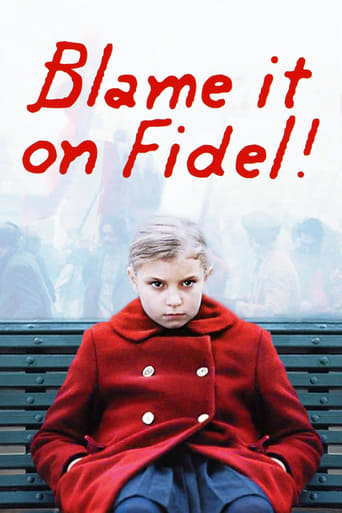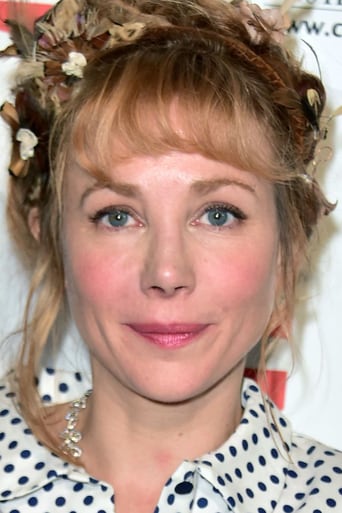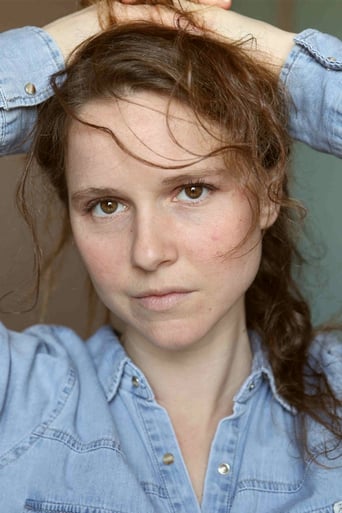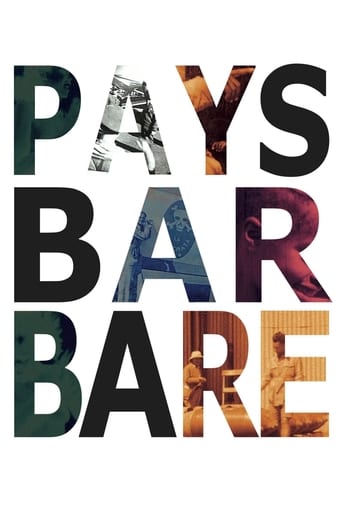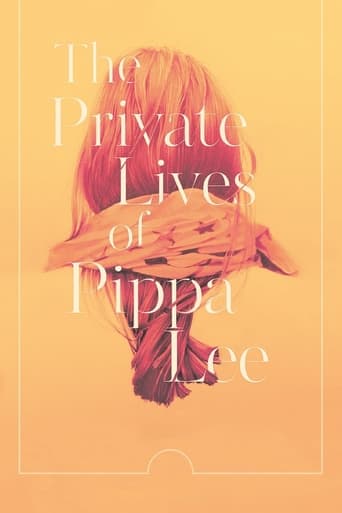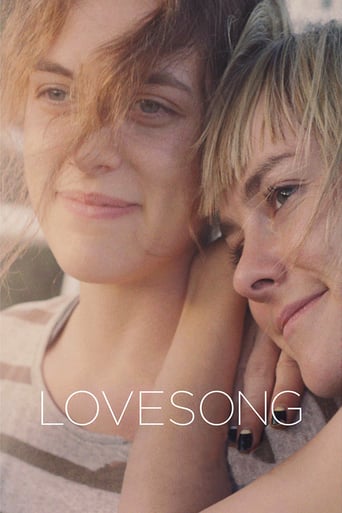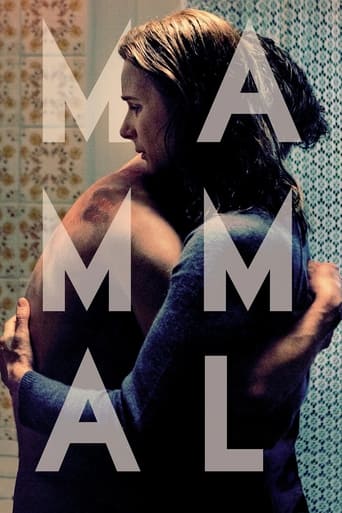Blame It on Fidel! (2007)
A 9-year-old girl weathers big changes in her household as her parents become radical political activists in 1970-71 Paris.
Watch Trailer
Cast


Similar titles
Reviews
Blistering performances.
It's the kind of movie you'll want to see a second time with someone who hasn't seen it yet, to remember what it was like to watch it for the first time.
It’s fine. It's literally the definition of a fine movie. You’ve seen it before, you know every beat and outcome before the characters even do. Only question is how much escapism you’re looking for.
One of the worst ways to make a cult movie is to set out to make a cult movie.
Who needs Hollywood? No political correctness, no censoring, just a portrait of a young family living in the 70'ties France in the aftermath of the '68 revolution. Feeling an obligation to follow up and contribute in the overturn of the dictatorships in Spain and Chile. Gives me personally a perspective on a time, where I, myself being 10-12 years old like Anna, the main character, only sensed the 'strange' music and colorful clothing. So captivating, that I forgot to randomly check my smart phone during the entire movie. As a story told from a child's perspective in a certain period of time, 'Fidel' falls in the same category as El Espiritu de La Colmena (1973) and El Laberinto Del Fauno (2006)
What impressed me most about this film was how you always know what Anna is feeling. This is partly because of the wonderfully expressive actress playing the part, and partly because it is easy to recall how we felt about things as children and recognize how we would react to the clearly drawn situations of the film. It is also remarkable because while most French movies let you know what characters think simply by having them talk endlessly, Anna keeps her words short and to the point and the adults around her never seem to explain things as much as they ought to.It is interesting to see how people here respond to the film. One review described it as a movie about adults balancing child raising with world saving, which is certainly a part of the film but to me wouldn't seem to be the focus. Someone else saw the film as an example of how activists can be bad parents.But really, this film is so focused on Anna that I tended to feel whatever she was feeling, and as her feelings and understand evolved during the film, mind did as well. The movie feels very balanced, showing everyone's strengths and weaknesses, kindnesses and cruelties, honor and stupidity, and it feels very authentic; I don't know if this is fiction, a memoir or somewhere in between, but it feels very realistic and believable.This is a quiet, thoughtful movie and it took me a while to get into it, perhaps simply because I approach French movies with a certain amount of suspicion, which is why I gave it a 7 instead of an 8. I became more and more drawn in as I watched, and found the final scenes especially touching. It's a lovely little film.
Wonderful movie that clears out your mind and leaves you purified when feeling so dirty. Wonderful little girl! Wonderful little boy! So amazed by how they are that I don't feel like saying more on the movie in general. Anna de la Mesa is so real. All that phases she goes through and all the complication of her mind are beautifully harmonized with the politics. It's not a story of a changing family (life); it's rather the display of a huge load on the shoulders of a little girl. It's worth it; watch it.(By the way just because I watched the two in a row; I must say that "La Faute à Fidel" is much more effective than "Persepolis" in order of viewing the world from a growing child's point-of-view. Good directing there by Julie Gavras.)
La Faute à Fidel centers on the life of an indulged nine year old girl, called Anna (Nina Kervel), and her adverse descent from the luxuries of a bourgeois life to the cramped, destitute conditions of her parents new found belief. Situated mostly in Paris during the early 1970s and among the aftermath of the collapse of the De Gaulle government, the film tells of a change of prosperity that occurs after the death of her father's, (Fernando; Stefano Accorsi), brother-in-law. The death compels Anna's parents to readdress their political complacency causing Fernando to become part of the active opposition to Francisco Franco (of Spain) and Salvador Allende (of Chile). Consequently Anna's life is transformed and this is demonstrated through her constant bewilderment, intellectual expansion and amusing misinterpretations.During the film the family's new apartment slowly grows hectic due to an encroachment of the "barbudos" (bearded men; or Chilean Activists) and as most of the story takes place there, the director (Julie Gavras), is able to create a feeling of invasion in Anna's life. This is played-out in a scene when the young Anna awakes to find her home swarming with "barbudos" and no parents. The camera here, and for most of the film, is at Anna's height. At this point the audience is aware of Anna's worry and concern. Gavras superbly complements this with her camera-work, as a lot of the shots are orientated around Anna. The shot reverse shots are either pointing down at Anna or up at an adult, the framing of her achieves narrative centrality and the film is littered with child like symbols (most notably the frequent shots of her sandals; perhaps an invitation for the audience to place themselves in Anna's shoes).Through the eyes of a nine year old child the film manages to show us the problems, difficulties and effects that extreme political transformation can have on a family. Not only are the parents going through a period of enlightenment but so is Anna as she is bombarded with an array of terms and ideologies, including communism, activism, capitalism, Catholicism, conservatism, mythology and abortion all of which she tries make sense of. Despite this Anna is treated like an equal when among her parents and the "barbudos", because they make the effort to explain and reason to her the things she doesn't understand. The manner in which these adults talk with Anna is short-lived, because as soon as she dons a uniform and becomes part of the strict and religious system (that is her school) she is no longer that free-thinking individual. She is unable to question the system once she is a part of it; this supported by emphasized further when she questions her teacher over a story involving the dilemmas facing a goat.The fact that the adults endeavor to relate to Anna on their level demonstrates a liberal upbringing and the understanding of children as equals. This is seen through her mother's (Marie; Julie Depardieu) explanation of abortion, her discussion on Dad's "dickie" and the Chilean activists attempt to discuss their ideologies with Anna. Furthermore, the family's abandonment of "Sundaying" is a metaphor for them resisting social constraints and re-appropriating them by, as Anna's brother points out, "Sundaying" on a Wednesday. This is interesting because it serves as visual allegory for rebellion as it's in direct contrast with the notorious aspects of Franco's fascist regime and his renowned focus on traditional values. This notion is furthered by Anna leaving the confinements of her school, dropping her uniform, mixing with another gender/race and being embraced; this sequence of events is her liberalisation.As the title suggests, it is packed with political and literal metaphors and through centering on a child the film keeps itself amusing and fresh. But, ultimately and at its heart, the film is a fine family drama that utilises the backdrop of political angst and cultural change to help tell its story.

